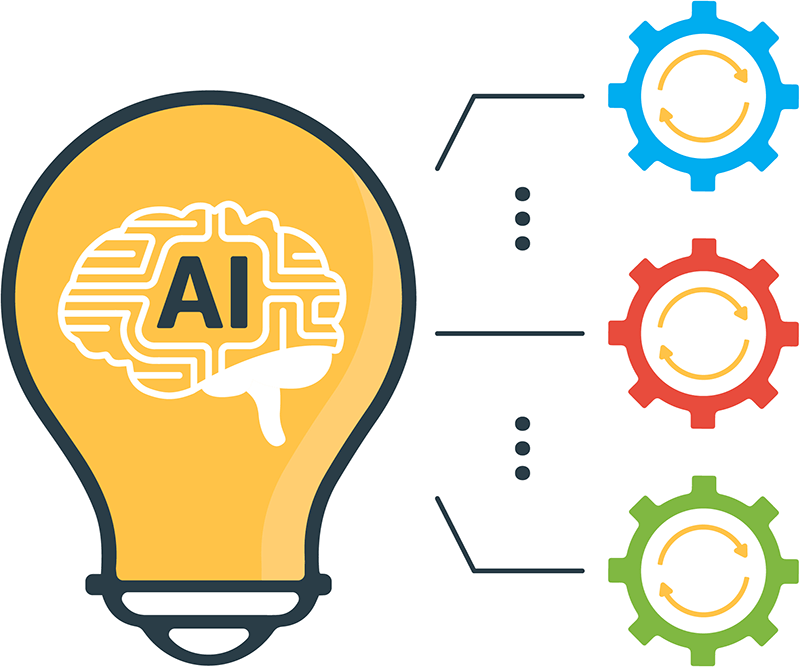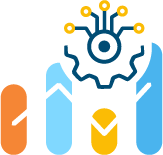Nos últimos anos, o aprendizado de máquina vem tomando o mundo de assalto: mais e mais organizações de vários setores, até mesmo os aparentemente mais incompatíveis, estão adotando-o para otimizar processos de produção, para melhorar a experiência do cliente, detecção de fraudes e propósitos de segurança, e até mesmo para diagnosticar e tratar doenças. Mas, à medida que essa adoção cresceu, tornou-se cada vez mais importante gerenciar o processo de desenvolvimento, implantação e manutenção de modelos de aprendizado de máquina em escala — isso é chamado de MLOps. O MLOps envolve várias tarefas, como gerenciar dados, treinar modelos e monitorar o desempenho. Naturalmente, inúmeras ferramentas de MLOps de código aberto e proprietárias tornaram essas tarefas mais fáceis.

Neste artigo, veremos algumas das ferramentas MLOps de código aberto mais populares disponíveis hoje e daremos um resumo do que elas podem fazer. Para sua conveniência, dividimos as ferramentas em categorias com base nos recursos que elas têm a oferecer para ajudar cientistas de dados e engenheiros de machine learning a trabalhar com mais eficiência.
Ferramentas de gerenciamento de fluxo de trabalho
- Fluxo de Cubo é uma plataforma nativa do Kubernetes para executar fluxos de trabalho de ML, incluindo treinamento de modelo, ajuste de hiperparâmetros e serviço. Ela foi projetada para facilitar o processo de construção, implantação e gerenciamento de fluxos de trabalho de machine learning em clusters do Kubernetes como infraestrutura subjacente.
- Fluxo de ML é uma plataforma com uma abordagem abrangente para gerenciar o ciclo de vida do ML, desde a preparação de dados até a implantação do modelo. Um de seus principais recursos é permitir que cientistas de dados rastreiem experimentos, empacotem e compartilhem códigos e gerenciem modelos de forma escalável. Além disso, o MLflow permite rastrear e visualizar execuções de experimentos, empacotar código e dados como execuções reproduzíveis, gerenciar versões e implantação de modelos e integrar-se com as bibliotecas e estruturas de ML mais populares.
- OptScale, plataforma MLOps e FinOps, oferece uma oportunidade de executar ML/AI ou qualquer tipo de carga de trabalho com desempenho e custo de infraestrutura ideais, criando perfis de trabalhos de ML, executando experimentos automatizados e analisando o uso da nuvem. O OptScale fornece otimização de desempenho integrando-se com modelos de ML/AI, destacando gargalos e fornecendo recomendações claras de desempenho e custo. Runsets permite que os usuários especifiquem um orçamento e um conjunto de hiperparâmetros e o OptScale executa vários experimentos com base em diferentes hardwares (aproveitando instâncias Reserved/Spot), conjuntos de dados e hiperparâmetros para fornecer os melhores resultados.
- Metafluxo é uma estrutura para construir e gerenciar fluxos de trabalho ML/DS de ponta a ponta. Ela cria uma camada de abstração de alto nível para simplificar o desenvolvimento e a implantação de projetos de aprendizado de máquina. A estrutura abrange a infraestrutura subjacente, como armazenamento de dados, execução e monitoramento. Ela também inclui recursos para rastrear experimentos, gerenciar controle de versão e implantar modelos na produção. Ele pode ser facilmente integrado com bibliotecas Python como Pandas, NumPy e TensorFlow.
- Quedro é uma estrutura Python de código aberto para construir pipelines ML/DS robustos, modulares e reproduzíveis. É especialmente bom em gerenciar a complexidade de projetos de aprendizado de máquina em larga escala, pois inclui recursos para pré-processamento de dados, treinamento e teste de modelos e implantação de modelos, bem como para gerenciar controle de versão de dados, injeção de dependência e estrutura de projeto. Um dos recursos notáveis do Kedro é a capacidade de gerar um modelo específico do projeto com estruturas de pastas e arquivos predefinidos, que podem ser personalizados com base nas necessidades do projeto.
- ZenML fornece uma solução simplificada para gerenciar fluxos de trabalho de ML. Seus pipelines modulares, pré-processamento automatizado de dados, gerenciamento de modelos e opções de implantação funcionam em coesão para simplificar o complexo processo de aprendizado de máquina. O ZenML pode ser usado com várias estruturas de aprendizado de máquina e permite implantação perfeita na infraestrutura de nuvem.
- Recife ML é uma plataforma de colaboração para projetos de machine learning. Ela oferece ferramentas e recursos que ajudam todos os envolvidos a se unirem para trabalhar em projetos de machine learning e seus principais estágios, como controle de versão, gerenciamento de dados e implantação de modelo. O MLReef também tem uma capacidade de integração fácil com uma variedade de estruturas de machine learning, tornando-o uma plataforma versátil para projetos colaborativos de ML.
- Execução MLR é mais uma plataforma para construir e executar fluxos de trabalho de aprendizado de máquina. Com o MLRun, é possível automatizar seus pipelines de aprendizado de máquina delegando à ferramenta ingestão de dados, pré-processamento, treinamento de modelo e implantação. O MLRun é flexível e pode ser usado com diversas estruturas de aprendizado de máquina, tornando-o uma ferramenta poderosa para gerenciar até mesmo projetos de ML complexos. Por último, mas não menos importante, o MLRun permite que cientistas de dados e desenvolvedores colaborem em projetos e otimizem o fluxo de trabalho de aprendizado de máquina facilmente.
- LMC, que significa Aprendizado de Máquina Contínuo, é uma plataforma para construir e implementar modelos de ML no pipeline de integração contínua/implantação contínua (CI/CD). O CML também elimina o incômodo de automatizar a ingestão de dados e a implantação de modelos, tornando mais fácil gerenciar e iterar em projetos de aprendizado de máquina e melhorando a velocidade e a qualidade do desenvolvimento.
- Laboratório Cortex ajuda a implementar modelos de machine learning em escala, cuidando do dimensionamento automático, monitoramento e alertas. O Cortex Lab oferece suporte a uma variedade de estruturas de machine learning e permite fácil integração com infraestrutura de nuvem, o que garante desempenho e confiabilidade ideais em ambientes de produção.
Ferramentas automatizadas de aprendizado de máquina
- Auto Keras é uma biblioteca que facilita a construção e a implantação de modelos de aprendizado de máquina. Ela usa um algoritmo de busca de arquitetura neural para selecionar a melhor arquitetura para um determinado conjunto de dados e tarefa. Além disso, ela automatiza o ajuste de hiperparâmetros e o pré-processamento de dados, incluindo classificação, regressão e processamento de imagem e texto. Isso permite a criação fácil de modelos de ML de alta qualidade sem nenhum ajuste manual.
- H2O AutoML automatiza o processo de treinamento, construção, otimização e implantação de modelos. Ele usa algoritmos para lidar com vários problemas de aprendizado de máquina, como prever resultados ou classificar dados. O H2O AutoML é adequado para estudantes: ele ajuda a construir modelos de alta qualidade sem exigir amplo conhecimento de aprendizado de máquina e experimentar ML sem gastar muito tempo em ajustes e otimizações manuais.
- NNI é um kit de ferramentas projetado para automatizar o processo de ajuste fino de hiperparâmetros em modelos de ML para garantir sua precisão. Ele faz isso encontrando automaticamente as melhores configurações para escolhas essenciais no modelo, o que pode ser demorado e propenso a erros para fazer com as próprias mãos.
Ferramentas de processamento de Big Data (incluindo rotulagem e controle de versão)
- Hadoop é uma plataforma que permite o armazenamento e processamento distribuídos de grandes conjuntos de dados em clusters de computadores. Ela é projetada especificamente para lidar com big data; para esse propósito, ela usa um sistema de arquivos distribuído proprietário chamado HDFS (Hadoop Distributed File System) para armazenar dados em várias máquinas perfeitamente. Ela usa um sistema de processamento chamado MapReduce para analisar e processar os dados em paralelo.
- Fagulha é uma estrutura de processamento de dados extensiva que fornece uma interface para gerenciar grandes conjuntos de dados em paralelo, tornando possível executar cálculos mais rápido do que métodos tradicionais de processamento de dados. Além disso, o Spark suporta muitas linguagens de programação, incluindo Java, Python e Scala, e oferece bibliotecas integradas para processamento de dados.
- Controle de versão de dados (DVC) é uma plataforma para gerenciar modelos de machine learning e conjuntos de dados em termos de rastreamento de suas mudanças ao longo do tempo, o que promove a colaboração entre os membros da equipe. E sua principal funcionalidade é a capacidade de controlar versões de conjuntos de dados, o que significa que você pode reverter rapidamente para versões anteriores dos dados, se necessário.
- Paquiderme é uma plataforma para gerenciar pipelines de dados que também oferece uma maneira de controlar versões e gerenciar conjuntos de dados usando uma interface semelhante ao Git.
- Estúdio de Etiquetas é uma plataforma para rotular conjuntos de dados (imagens, texto e outros tipos de dados) com uma interface baseada na web e fácil de usar.

Otimização gratuita de custos de nuvem e gerenciamento aprimorado de recursos de ML/IA para toda a vida
Implantação e veiculação do modelo
- Núcleo Seldon é uma plataforma para implementar e servir modelos de machine learning no Kubernetes e outras plataformas de nuvem. Ele também pode empacotar e implementar modelos de ML como microsserviços, facilitando a integração com outros aplicativos e serviços, se necessário. Com sua funcionalidade avançada, é possível rastrear métricas, definir alertas e executar dimensionamento automatizado.
- Voar é uma plataforma de código aberto para desenvolver, executar e gerenciar fluxos de trabalho de machine learning. Ela também fornece recursos para rastrear e analisar o desempenho dos seus fluxos de trabalho, incluindo métricas, logs e visualizações.
- Jina – uma plataforma de código aberto para construir e implementar sistemas de busca neural. Ela oferece uma maneira de construir e implementar sistemas de busca usando técnicas de aprendizado profundo. Jina é uma estrutura para construir serviços e pipelines de IA multimodais, depois servi-los, dimensioná-los e implantá-los em um ambiente pronto para produção, como o Kubernetes. Ele também fornece recursos para gerenciar e monitorar suas implantações de pesquisa, incluindo a capacidade de aumentar ou diminuir a escala e rastrear métricas e logs.
Algumas palavras sobre OptScale
Queríamos reservar um lugar especial para Plataforma de código aberto OptScale, FinOps e MLOps, pois essa plataforma é difícil de categorizar. O OptScale permite que os usuários executem ML/AI ou qualquer tipo de carga de trabalho com desempenho e custo de infraestrutura ideais. A plataforma fornece um conjunto de ferramentas para Finops e propósitos de otimização de custos, oferece integração com infraestrutura de nuvem e recursos para otimizar o desempenho e o custo de ML/AI e, por último, mas não menos importante, apresenta Runsets. Runsets são um conjunto de execuções automatizadas com base em recomendações de hardware e um conjunto de hiperparâmetros definido.
O OptScale também oferece os seguintes recursos exclusivos:
- Uso completo de recursos de nuvem e transparência de custos,
- Recomendações de otimização,
- Detecção de anomalias e ampla funcionalidade para evitar estouros de orçamento,
- Vários recursos de MLOps, como tabelas de classificação de modelos de ML, identificação e otimização de gargalos de desempenho, execução em massa de experimentos de ML/IA usando instâncias spot e reservadas, rastreamento de experimentos,
- Integração do MLFlow no OptScale – gerencie o ciclo de vida dos resultados do modelo e do experimento com gerenciamento de nuvem simples e experiência do usuário aprimorada.
Para finalizar, muitas ferramentas MLOps de código aberto oferecem uma ampla gama de recursos, desde gerenciamento de fluxo de trabalho e aprendizado de máquina automatizado até processamento de big data e implantação de modelo. OptScale, totalmente disponível como um solução de código aberto no Apache 2.0 no GitHub, se destaca da multidão ao fornecer recursos exclusivos para otimização de custo e desempenho, juntamente com integração com infraestrutura e recursos de nuvem. Seja você um cientista de dados, engenheiro de aprendizado de máquina ou outro profissional de TI, você realmente achará o OptScale útil para otimizar seu fluxo de trabalho e desbloquear um potencial mais significativo em suas capacidades de aprendizado de máquina.
💡 Você também pode se interessar pelo nosso artigo 'Principais processos de MLOps (parte 1): Experimentação ou o processo de condução de experimentos' → https://hystax.com/key-mlops-processes-part-1-experimentation-or-the-process-of-conducting-experiments.

